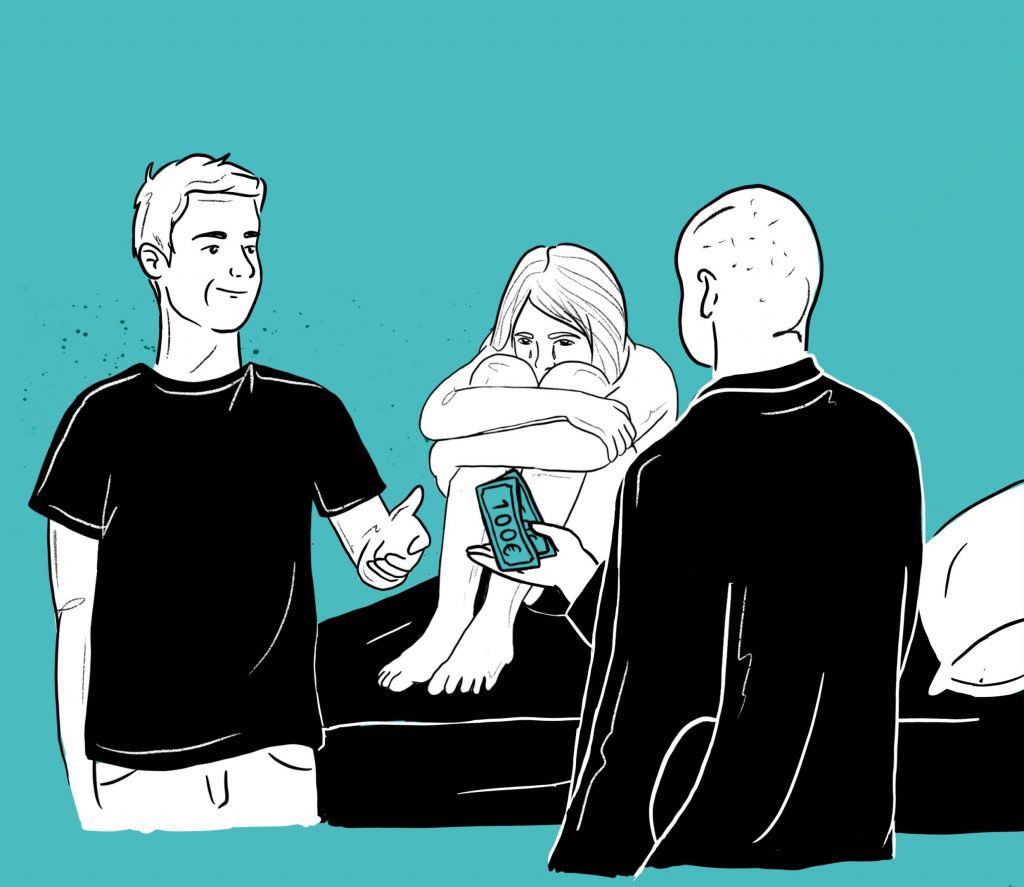By Evi Tsakali,
Normally, a loverboy would want to conquer your heart, but those loverboys also want to conquer the streets…giving the term “loverboy” a whole new dark meaning. Loverboys, also widely known as Romeo pimps, are men who first coax teenage girls into a relationship and, once they have gained their trust, force them into prostitution.
It is a phenomenon that has taken alarming dimensions, especially in the Netherlands, where an estimated 5,000 young women have been victims of loverboys.

Journalist Maria Genova, who has written a book on the phenomenon, has elaborated on the fact that those Romeo pimps succeed in developing such a strong bond based on the dependence of the victim on them, that the latter remain extremely loyal to them, even after everything they have endured; they may tend to protect them, or, as Genova highlights, “a lot of times after they get help, they are still so in love with them that they go back to the abuser.” In the most extreme situations, young women are gaslighted to a point where they don’t even consider themselves to be victims.
Anita de Witt, head of the organization Stop Loverboys Now, explains how victims are subject to violence and/or threatened with exposure on the Internet. Romeo pimps either blackmail the girls with revenge porn by using footage of them naked that they may have acquired throughout the relationship, or they convince them that prostitution will only be a temporary means of financing the payment of their debts; otherwise, their Prince Charming will end up in jail. Regardless of the method they use, though, the common ground among loverboys is that they take advantage of the mad love and blind trust that their preys have towards them (which are usually combined with a lack of support by their entourage).
Especially during the “grooming phase,” their modus operandi consists of showering the victims with love and gifts and being overly protective. They present themselves as the only ones capable of protecting them and standing up for them when they need it (given that they mostly target girls in marginalized, precarious situations, their influence is, as such, multiplied). The role of social media has been very significant, as they have been crucial to the way Romeo pimps approach the otherwise introverted girls. Research has shown that in the past few years, the process of wooing the victims has been accelerated, which makes the phenomenon even more alarming.

Unfortunately, the issue of loverboys and its dangerous implications for teenage girls is not widely discussed in Greece; however, the Diotima Center for Gender Equality has recently brought to the spotlight the #ActNow campaign in Greece, and it is to its content that I will refer you to readers—as you will be introduced to testimonials that I did not consider pertinent (or appropriate) to include here just for the sake of an article.
What I would like to say in lieu of a conclusion is that it is more than legitimate for every girl to be looking for her Prince Charming; and we will all find one eventually. Nevertheless, that does not mean that we should not protect and look after ourselves, and we should always remember that life may feel like a fairytale from time to time, but fairytales don’t always have happy endings…
References
- Κέντρο Διοτίμα: Καμπάνια ActNow για τις αφανείς μορφές έμφυλης βίας– Tο «φαινόμενο loverboy». ertnews.gr. Available here
- Lovers turned pimps. dw.com. Available here




